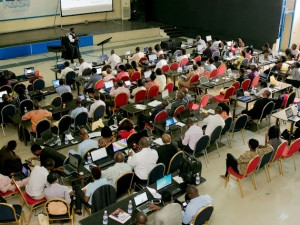
Google News Lab is supporting a new initiative, Africa-wide Digital Journalism, which aims to skill journalists in mobile reporting, mapping, data visualisation, verification and fact-checking.
This is being offered as advances in digital technology present journalists with opportunities to tell stories in new, interactive and engaging ways. However, learning how to use new digital tools can be intimidating, a particular challenge in Africa, where few journalism institutions offer training in digital tools and news organisations lack the capability to leverage new digital technologies in their reporting.
Working in partnership with the World Bank and Code for Africa, Google aims to train 6 000 journalists in 12 major African cities ? Abuja, Lagos, Nairobi, Cape Town, Johannesburg, Durban, Casablanca, Dakar, Freetown, Dar es Salaam, Kampala, and Yaounde ? between now and February 2018.
Training will take place in three formats beginning on 15 June, where in-person training sessions will be held on topics ranging from displaying data with an interactive map, to effective reporting with a mobile device.
"In each city, we'll conduct training in three newsrooms and hold training twice a month for the duration of the initiative," explains Daniel Sieberg, global head of training and development at Google News Lab.
"In August, a massive open online course (MOOC) will be made freely available online, covering a range of Web concepts and practices for digital journalists. We will also hold monthly study groups in collaboration with global meetup organisation Hacks/Hackers to provide more focused, in-person instruction. These monthly meetings will take place in Cameroon, Kenya, Morocco, Nigeria, Senegal, Sierra Leone, South Africa, Tanzania and Uganda."
In March, the technology company announced it had met its April 2016 target to train one million African youth on digital skills in a bid to help them create and find jobs. The trainees came from 27 different countries, but the majority were based in Nigeria (450 000), Kenya (400 000) and SA (70 000), with 53% men and 47% women. 97% of the group was trained in person face-to-face, while the other 3% were trained online.
"We hope this new initiative also helps contribute to the continued growth of Africa's digital economy," notes Sieberg.
Share